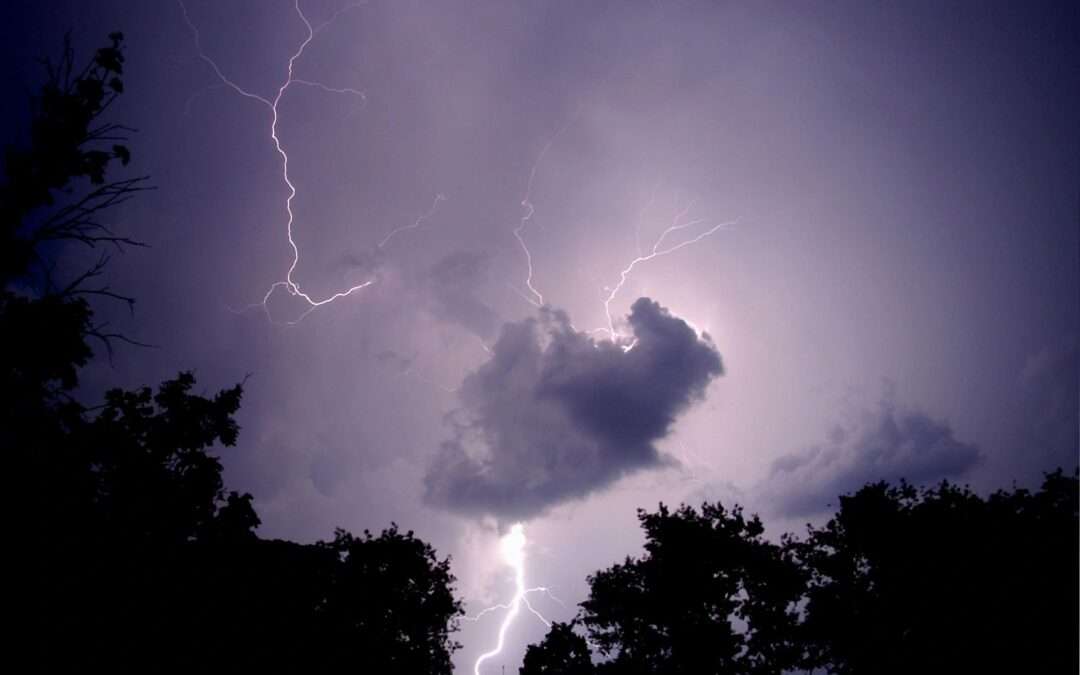Living in the beautiful Preston Hollow area of Dallas-Fort Worth (DFW) has its perks, but it also means experiencing powerful thunderstorms during certain seasons. While these storms relieve scorching summer heat, they can threaten your residential or commercial heating and cooling system. In this blog post, we’ll explore the effects of thunderstorms on your HVAC system and discuss practical ways to prevent potential damage. By implementing these preventive measures, you can ensure your system operates efficiently and smoothly all year round.
Power Surges: The Hidden Culprit
One of the primary concerns during thunderstorms is power surges. Lightning strikes or electrical fluctuations can cause sudden voltage spikes that wreak havoc on sensitive electronic components of your cooling and heating system. These power surges can damage circuit boards, capacitors, and compressors, leading to expensive repairs or even complete system failure. Without proper protection, a thunderstorm or severe weather damage to a new ac system can force it to stop working regardless of its recent installation.
Moisture and Flooding: Silent Threats
Another significant concern during thunderstorms is the infiltration of moisture and potential flooding. Heavy rain and high humidity levels can find their way into your HVAC system, affecting its performance and longevity. Excess moisture can lead to corrosion, rust, and mold growth, compromising indoor air quality and overall system efficiency.
Signs of Damage:
- The AC won’t turn on
- Low output from the AC System
- Unusual Noises or Smells
- Water Pooling around the outdoor unit
- Physical Damage to the AC System
Preventing Thunderstorm Damage to Your HVAC System
Now that we understand the potential threats thunderstorms pose to your residential heating and cooling system, let’s explore some practical ways to prevent damage:
Surge Protection: Install a whole-home surge protector to safeguard your HVAC system from power surges. This device acts as a first line of defense, absorbing excess voltage and preventing it from damaging your system’s sensitive electronics. If you don’t want a whole-house surge protector, consider an HVAC surge protector alone.
Uninterruptible Power Supply (UPS): Invest in a UPS system to provide temporary backup power during lightning storms or outages. UPS systems allow your cooling and heating system to shut down safely and avoid abrupt power fluctuations that can cause irreparable damage.
Outdoor Unit Protection: Consider installing a weatherproof cover or canopy to shield your outdoor unit from water damage during thunderstorms. Ensure it is securely fastened and adequately sized for good airflow and ventilation.
Regular Maintenance: Schedule routine HVAC maintenance with a reputable professional. A qualified technician can inspect and identify any existing or potential issues, such as loose connections or worn-out components, before they worsen due to thunderstorm damage.
Proper Drainage: Keep your HVAC system’s drainage lines and channels clear of debris to prevent water buildup during heavy rainfall. Regularly clean and maintain these areas to ensure proper water flow and prevent potential flooding.
Indoor Air Quality Control: Use a dehumidifier in areas prone to excess moisture, such as basements or crawl spaces. By maintaining optimal humidity levels, you minimize the risk of mold growth and protect your HVAC system from potential damage.
Freedom Heating & Air HVAC Power Surge Protection
Thunderstorms can be a powerful force of nature, and while you can’t control the weather, you can take proactive measures to protect your residential heating and cooling system. Implementing the preventive steps outlined in this blog post can safeguard your HVAC system from power surges, moisture infiltration, and other potential damages. Regular maintenance and professional inspections are crucial in promptly identifying and addressing issues. By prioritizing the protection of your HVAC system, you’ll ensure optimal performance, longevity, and comfort for your Preston Hollow home in DFW.
Do you want to learn more about protecting the Air Conditioning system in your home or business? Contact Freedom Heating & Air at (214) 306-8456 for fast and friendly service.


